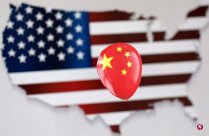(Seoul Comprehensive News) South Korean officials revealed that the South Korean government will work hard to persuade the United States to allow Korean chip manufacturers to operate in China to maintain the current investment level and will not be affected by Washington's further restriction of investment flow into China.
will be subsidized in the U.S. chip factory but must be accepted by the guardrails
According to the chip and science bill, the US Department of Commerce will provide subsidies of $ 39 billion in the establishment of a semiconductor factory in the United States, and will set up a guardrail clause, which contains the prohibition of related entities within 10 years from the date of effectiveness of the bill.In China, etc., mainly focused on national investment and construction semiconductor factories.The main content of the guardrail clause will be announced in March, and after 60 days of soliciting opinions of all parties, the clause will be finalized.
Yonhap News Agency on Tuesday (February 28) quoted officials from the Ministry of Foreign Affairs of South Korea that the basic purpose of the so -called "guardrail" clause was to prevent companies subsidized in the United States and conduct business in countries concerned by Washington.The South Korean government is discussing various methods to avoid damaging South Korean companies that have invested in China.
The United States issued measures in October last year to restrict chip manufacturers export advanced production equipment to China, but South Korean companies have obtained one -year exemption.If the exemption cannot be postponed, it is unclear how Samsung Electronics and SK Hynix will respond. Both companies regard China as a key market and have a memory chip factory in the country.
Basic position of the United States: consider trying to not affect investment in Chinese companies
South Korean officials said that the government is discussing the scale and scope of foreign investment in Korean companies, and the basic position of the US government is that it will consider not affecting Korean companies that have invested in China when formulating clauses.
According to predictions, although the clauses in the United States will include content that restricts investment in China, the restricted objects are limited to enterprises that exports, and semiconductor production consumed in China is not suitable for limited regulations.The South Korean government also believes that if South Korean companies invest in the Chinese demand market, they will not conflict with US chip subsidies.


